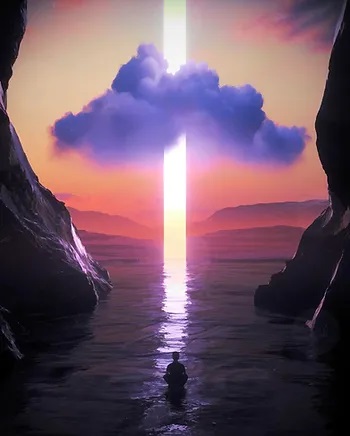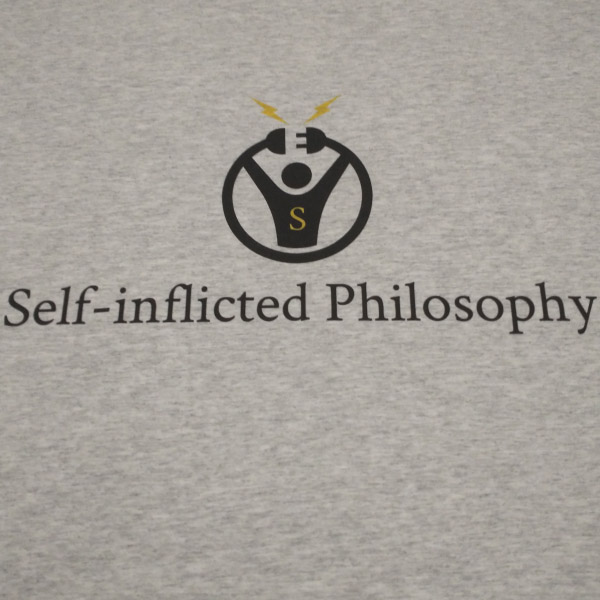www.self-inflictedphilosophy.com
You Are the Greatest Teacher You Will Never Know
“To find a mountain path all by oneself gives a greater feeling of strength than to take a path that is shown.” ~Karen Horney
Find the nearest mirror. Look deeply into it. There, hidden within that fabulously flawed human being staring back at you, is the greatest teacher you will never know.
Yes. It’s yourself. And yes, you will never really know yourself.
The inscription at the Temple of Delphi “know thyself” is ultimately unattainable, but that doesn’t mean you shouldn’t seek it. Enlightenment is equally unattainable, but there’s nothing wrong with striving for it. Self-improvement is still healthy regardless of the fact that you will never be perfect. Socrates’ dictum still stands: “The unexamined life is not worth living.”
Examining your own life is always going to begin with your interpretation of it. So it behooves you to align your interpretation with reality. Easier said than done. Because examining the self is a tricky proposition. The Self is an elusive mystery. It’s masks all the way down perceiving delusions all the way up.
The trickiest part is that only you can experience these masks and delusions. Nobody else can experience them for you. They are subjective. Your experience of them will always be primary to anyone’s interpretation of them. Not even the best shrink in the world can know them as well as you can.
That’s what makes self-examination, and the self-realization that comes from it, so important. Therapists are, at best, guides. They are therapeutic middlemen. Self-therapy is what a therapist directs you towards anyway. So, you might as well make that attempt to begin with. A therapist is good for keeping you on track and preventing you from getting stuck, but there’s nothing saying you cannot learn strategies to do it yourself.
There’s nothing saying you cannot be your own greatest teacher. The autodidact inside you is calling.
Learn your own nature by learning about human nature and Mother Nature:
“There is a voice that doesn’t use words. Listen.” ~Rumi
The most powerful way to hear the “voice that doesn’t use words” is through solitude and meditation. Out away from the things of man, where No-mind is free to remind you that you are a force of nature first and a human being second.
This is perhaps the most powerful strategy for teaching your Self to yourself. Solitude and meditation teaches a particular flavor of humility that gets you over your own ego (codependence) and puts you in touch with the interconnectedness of all things (interdependence). It teaches you how not to take yourself too seriously. When you unbecome yourself you become everything. You’re free to experience interdependence despite culturally conditioned codependence.
Allowing Nature to become your teacher cuts the uninitiated ego out of the equation and then sneaks in the initiated ego, which utilizes Soul as a tool to leverage a heightened state of awareness. From this heightened state comes the deep interdependent realization that everything is connected to everything else.
In this heightened state of eco-melting your third eye opens, your crown chakra blooms in full flutter, and your oneness with all things becomes paramount. You are suddenly out of your own way. You are free to learn what you must learn. You are free to become what you must become.
The cure for the pain is in the pain:
“Doctors study medicine. Teachers study education. Healers study darkness.” ~Mark Lundy
Just as you are your greatest teacher, you are also your greatest healer. Know thyself and heal thyself are reciprocal. Mother Nature teaches you this first. Pain teaches you this second. As Rumi said, “The cure for the pain is in the pain.”
Pain is inevitable. It’s a part of life. Avoiding pain just causes more pain. Ignoring or repressing pain just causes unnecessary suffering. Although pain is inevitable, unnecessary suffering is avoidable. It’s the same with spiritual or existential angst. We repress the darkness at our own great peril.
As long as you’re able to learn from the pain, it can become a steppingstone rather than a setback. Seen in this way, pain can be an initiation into wisdom (a sacred wound), and a flourishing into Eudaimonia. Which can be quite pleasurable.
Growth is painful. Change is even more painful. But being stuck is arguably the greatest pain of all.
Pain is a guide, a powerful teacher. And if you can gain the capacity to recognize the guideposts and learn the lessons that Pain provides, you will be more adept at adapting and more likely to grow into a healthier version of yourself.
The Daemonic and the Demonic:
“To learn to creatively live with the daemonic or be violently devoured by it. We will decide our own destiny. Let us choose wisely.” ~Stephen Diamond
The daemonic is the hidden genius within you: your latent creativity. The demonic is the hidden shadow within you: your repressed darkness. Ignore both at your own peril.
The daemon harbors vital knowledge and deep numen. It is your genius loci, your inspiring force, your attendant spirit, your guiding power. It is the quintessential teacher inside you.
It dwells in the fire of your passions, in your love and your anger, in your longing and your jealousy, in your happiness and your sadness. If you conform to your cultural conditioning and ignore or suppress its presence, these passions will eventually transform from a daemonic passion into a demonic rage, with potentially devastating results.
Hence the importance of reconciling the shadow. You do this by making the darkness conscious. By paying attention to your deepest wounds. Becoming curious with your deep wounds is honoring them with your attention. If you’re able to honor your wounds, then you will be more likely to reconcile your demons.
It’s not so much that you’ll suffer less but that you’ll suffer better. You will become healthier in the ways that you suffer. And with the demon as your diamond-backed ally, you add a streak of fierceness to your teaching/learning that can be revolutionary.
Have a good sense of humor about your own fallibility:
“Life is a matter of oscillation. Life is vibration. The question is: how are you going to interpret that. Is it tremble, tremble, tremble; or is it laugh, laugh, laugh?” ~Alan Watts
Laughter is the best medicine. It’s salve for the soul. Laughter reduces pain, forms deep social bonds, fosters brain connectivity, acts as an effective antidepressant, and protects the heart. Besides all these scientific benefits, laughter is flat out enjoyable.
It usually happens when you are having fun. But it is also a vital tool to use in the face of tragedy, fallibility and mortality.
Nothing is more powerful and courageous than laughter in the face of that which seeks to destroy you. Allow your humor to shine even as your soul is breaking under the heavy weight of cosmic nihilism. Allow it to blaze through the cracks of having fallen apart and come back together again. As Charlie Chaplin said, “Smile, though your heart is aching.”
Embrace the fact that you are a stumbling, naked ape fumbling over your barely evolved brain. You’re an anxious mammal with a mortal coil. You’re an insatiable beast with improbable reach. You might imagine that you are a mature, evolved being above baser animal instincts, but you’re not.
When it comes down to it, we are a laughably young species attempting to evolve on an extremely old planet which is hurtling through an unfathomably ancient universe. In the grand scheme of things, we are a floundering baby of a species. Yet we imagine we are gods who are above nature.
Having a good sense of humor is embracing your fallibility. It’s accepting that you are prone to mistakes; that you are imperfect, and always will be. It’s injecting a little humility into your human-biased disposition.
Mastering the self is mastering humility and humor. It’s embracing absurdity in a heroic sense. One is both humbled and empowered by a good sense of humor. The shadow’s “gold” and the “secret elixir” are then more easily excavated, and brought forth to others, despite the absurd experience of being a creature torn between spirit and flesh, mortality and eternity, tragedy and comedy.
If, as Karl Frei said, “Attitude is the difference between ordeal and adventure,” then having a good sense of humor is the ideal attitude to have, as your own greatest teacher, going on the greatest adventure you will ever experience: your very own hero’s journey.
Images source:
About the Author:
Gary Z McGee, a former Navy Intelligence Specialist turned philosopher, is the author of Birthday Suit of God and The Looking Glass Man. His works are inspired by the great philosophers of the ages and his wide-awake view of the modern world.
This article (You Are the Greatest Teacher You Will Never Know) was originally created and published byThe Mind Unleashed and is re-printed here under a Creative Commons license with attribution to Gary Z McGee and themindunleashed.com. It may be re-posted freely with proper attribution, author bio, and this statement of copyright.













